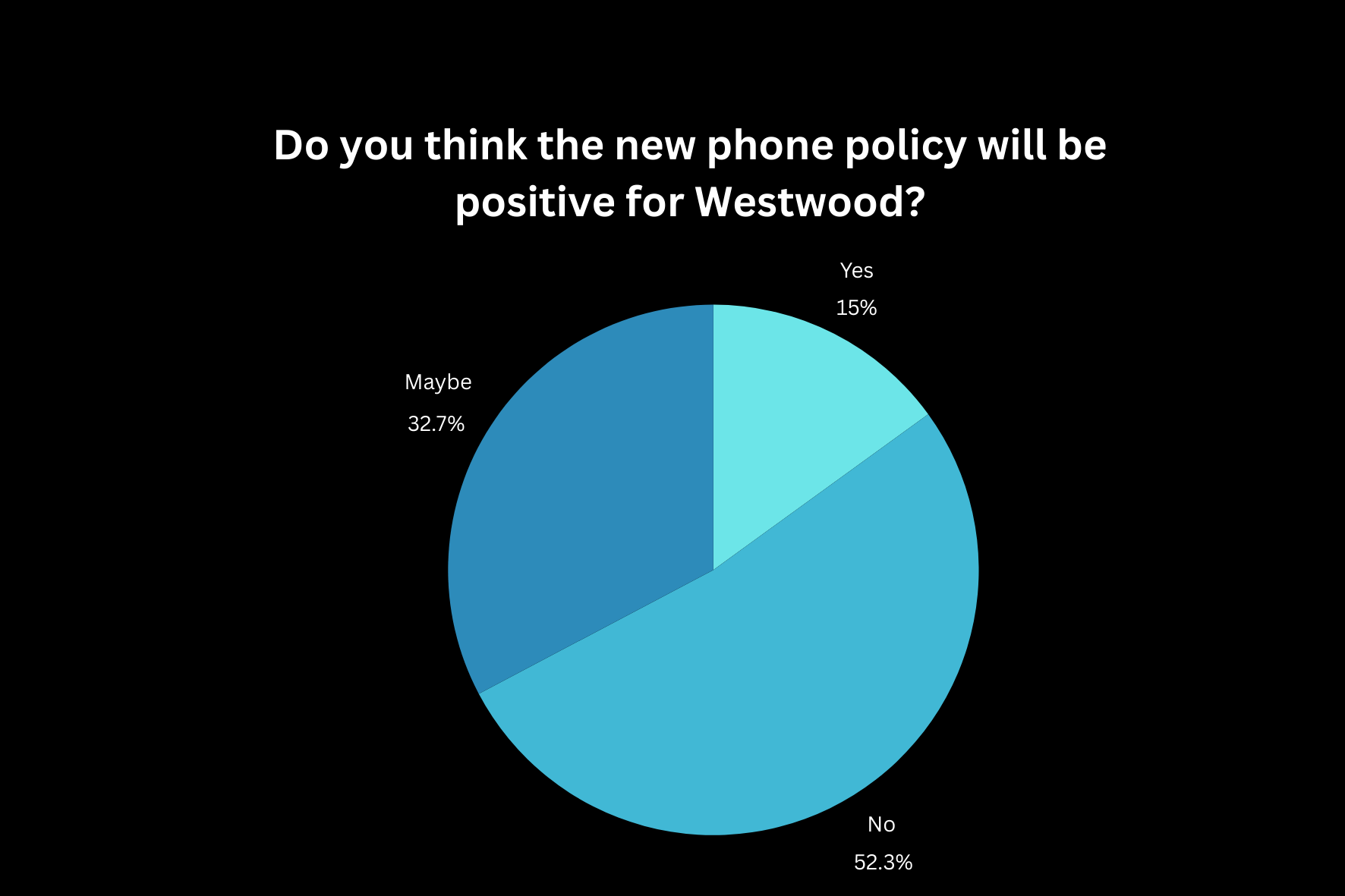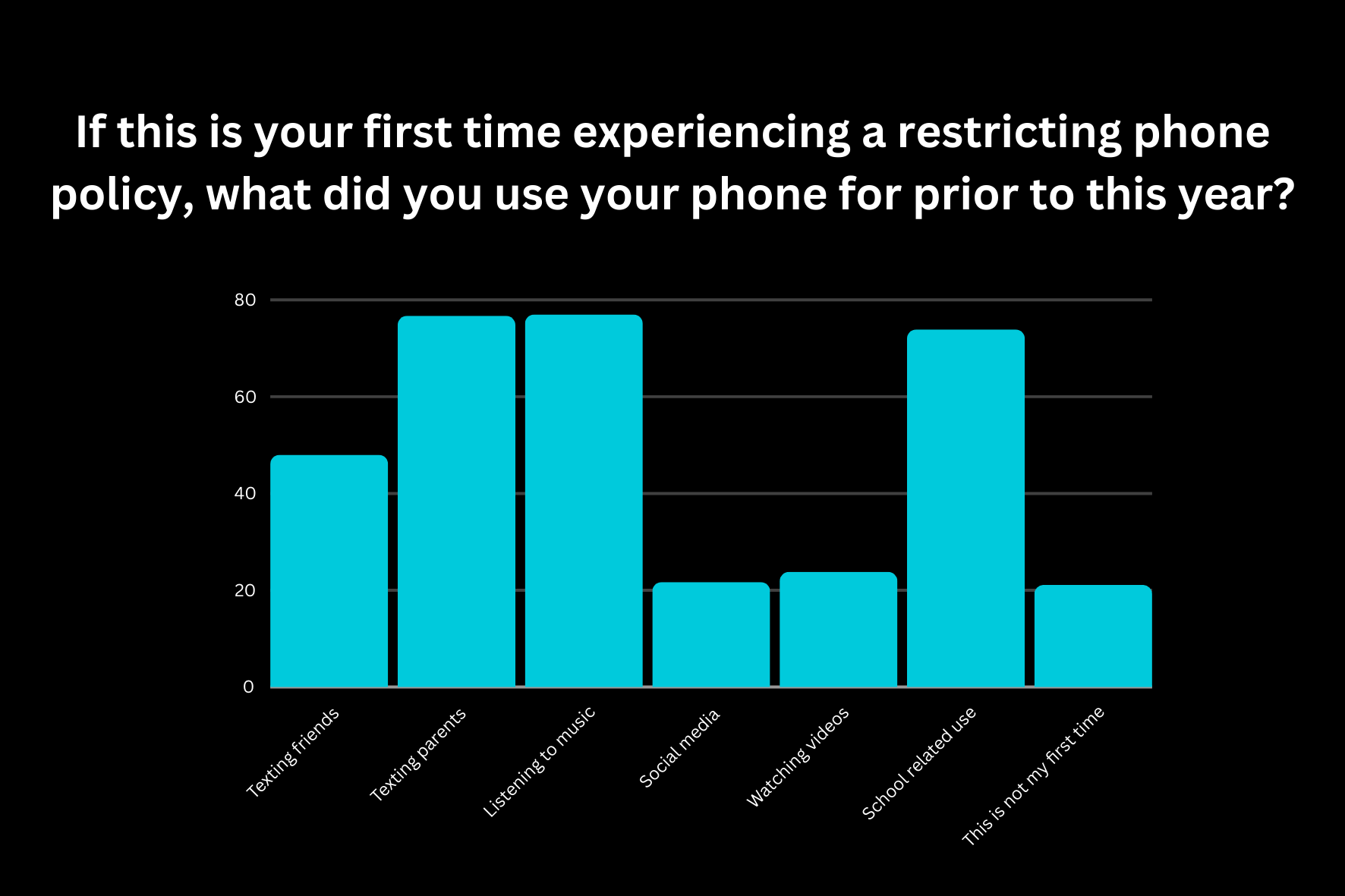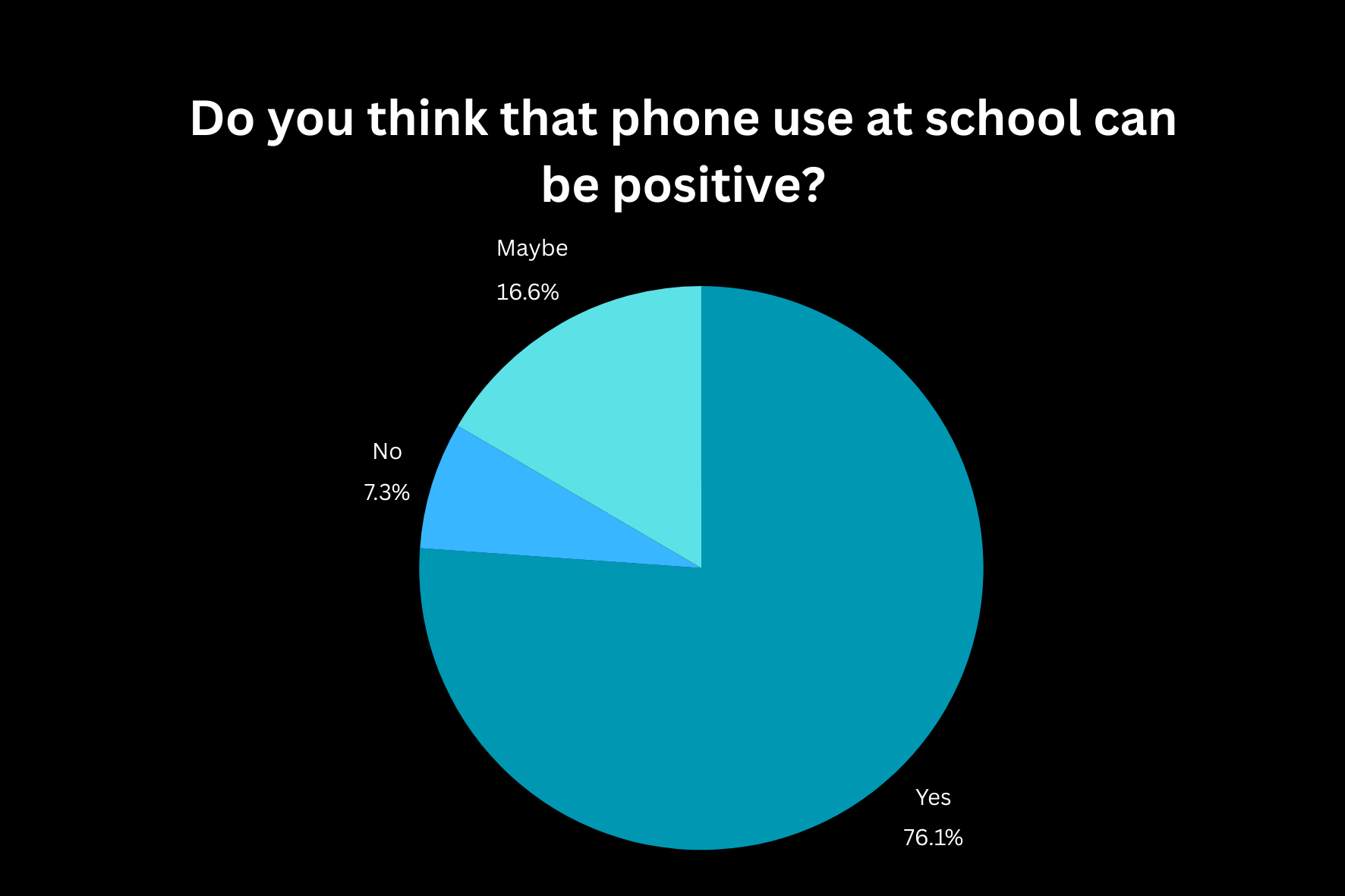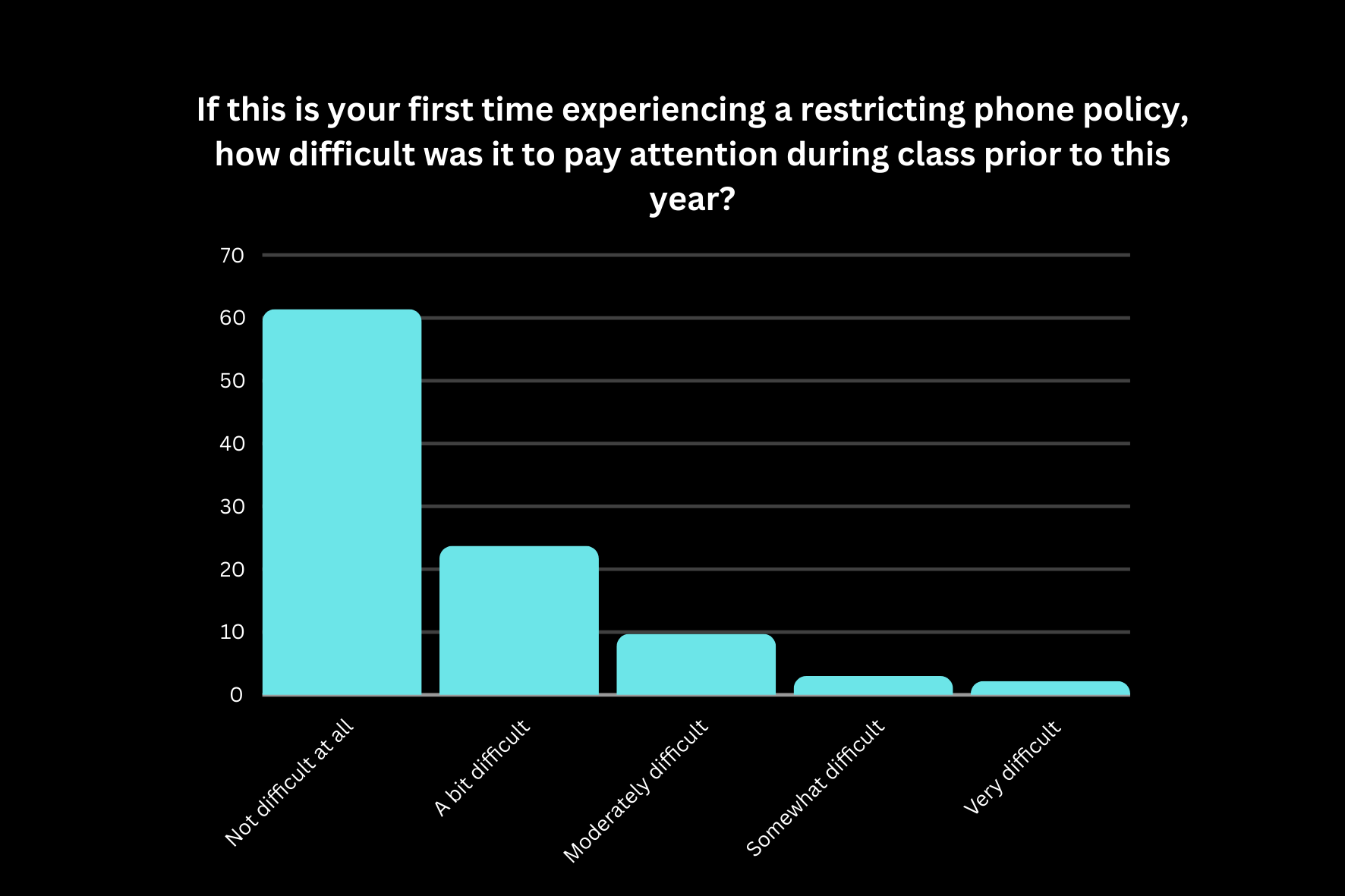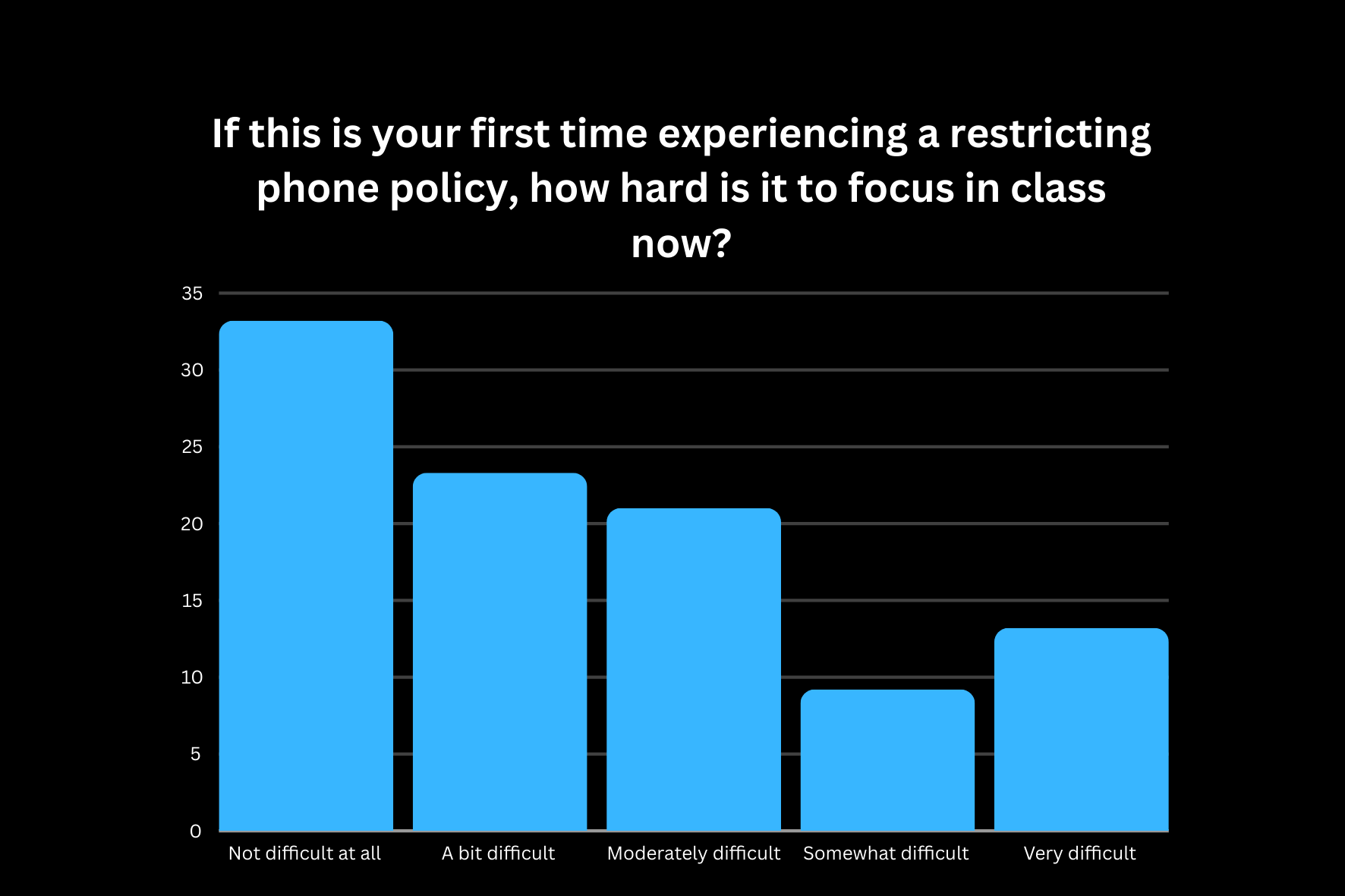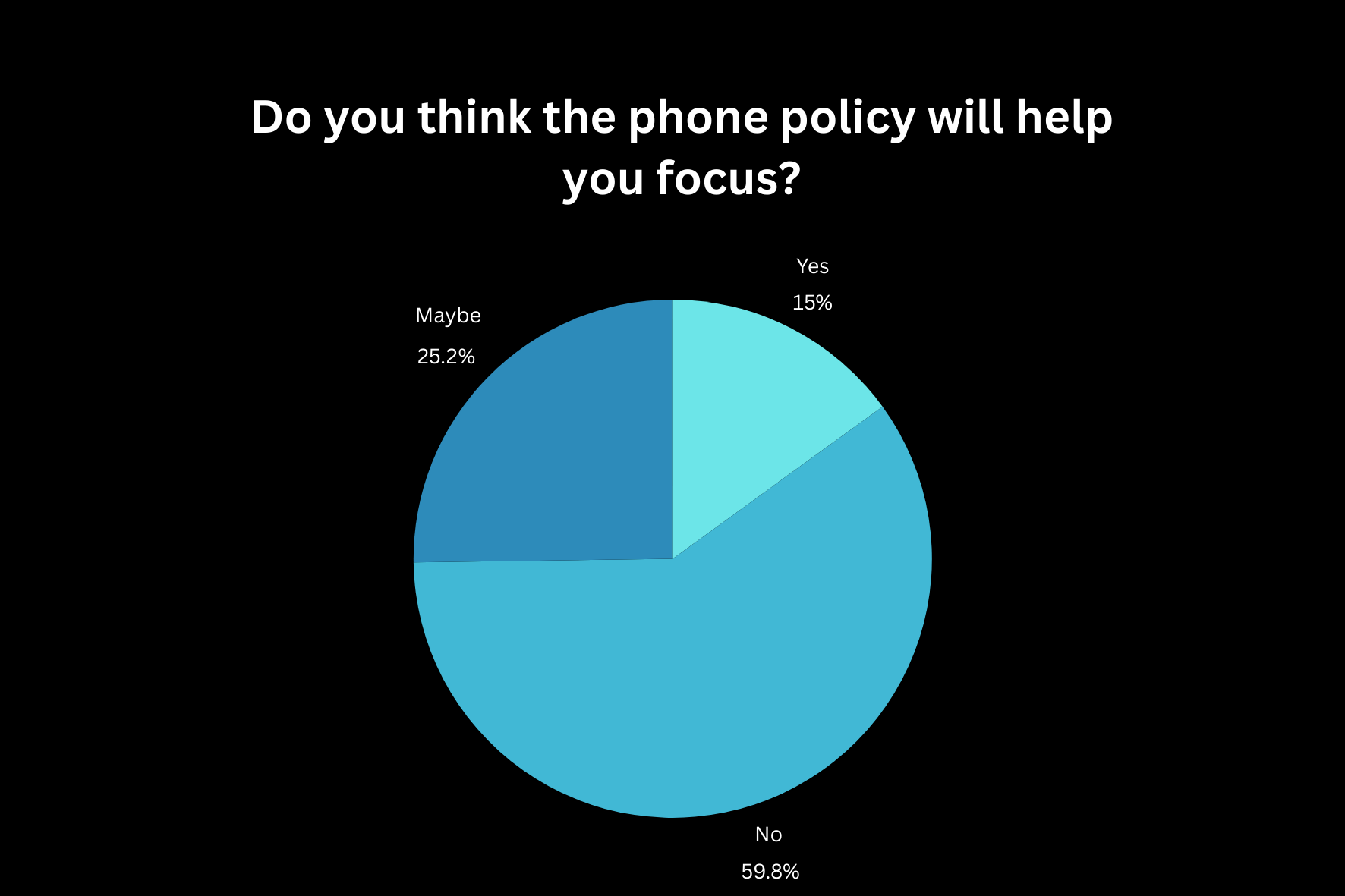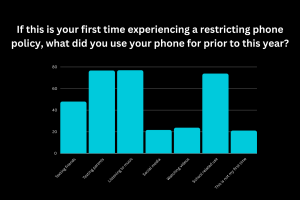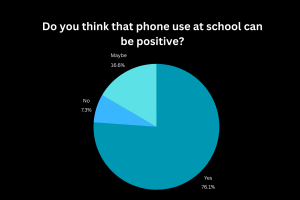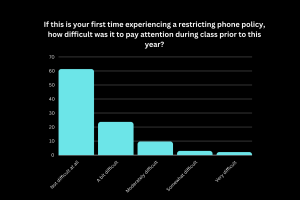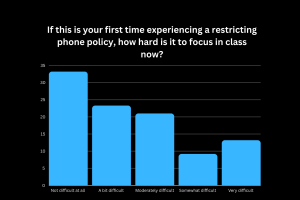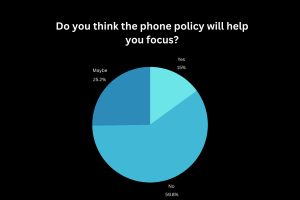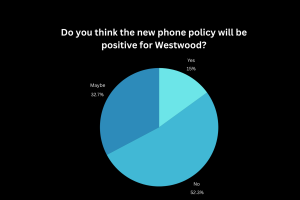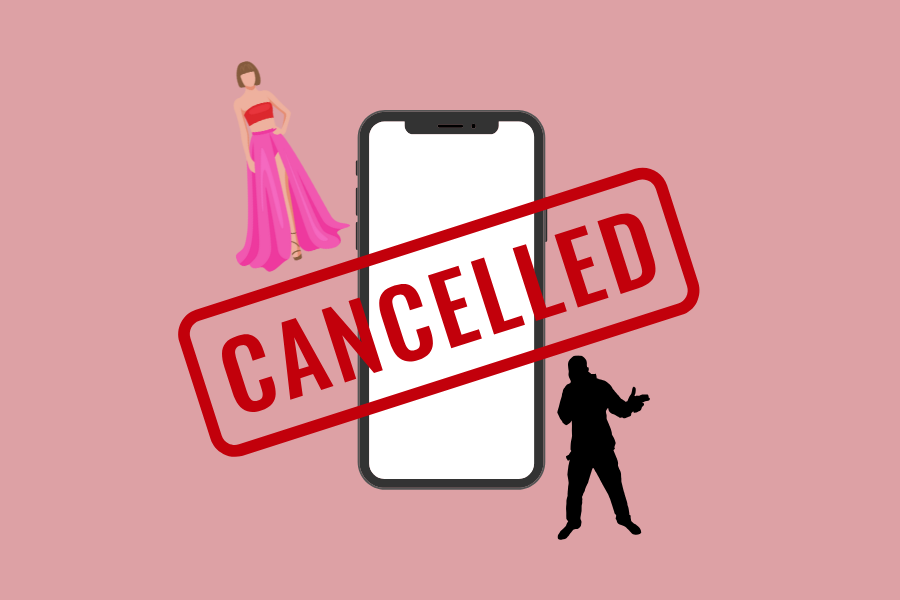Helpful or Stressful: Students Evaluate New Phone Policy

Westwood Student Press sent out a survey to the student body to gauge their opinions on the new phone policy. In two days, the survey received 785 responses.
As another school year begins, Westwood has a new policy in place regarding students’ use of phones during classes. The policy requires every student to keep their device in a designated storage location for the entirety of each class. Phones cannot be kept on students’ person or in their backpack, and every teacher, no matter the department, has been instructed to enforce the rule.
Those returning to Westwood know that in past years, rules about the use of phones and personal devices were at the discretion of each teacher for their respective classrooms. Some teachers took a relaxed position, arguing that if a student performed poorly in their class due to being distracted during lessons, it was their choice to make and live with the consequences. Others took a more strict approach and tried, often in vain, to limit their students from using phones. With the new policy established, everyone at Westwood, whether they like it or not, is now part of a united effort to completely limit distractions and issues with phones. With technology usage at a minimum, both students’ academic success and their mental health is going to improve.
Research shows that consistent use of phones and the internet rewires the brain to need constant new stimulation. As a result, attention spans of those who use their phone often are lessening. It’s no surprise that students have a hard time staying focused for a full 90-minute class when there is a phone on their desk offering endless possibilities for entertainment or distraction. The new phone policy will counteract this concern and help students break free from addiction to the fast-paced and always changing world of technology and social media. Improved focus on the teacher and peers will lead to better engagement in class and understanding course materials, with the outcome being better grades.
Westwood isn’t the first school that has made changes to its regulation of phones. In fact, many schools across the nation are implementing new policies to limit the use of devices. Studies show that in schools where phones were removed for the duration of class, students had notably higher levels of comprehension and mindfulness in the course. In addition, students without phones had significantly lower levels of anxiety. Westwood students are known for feeling stressed about heavy workloads and difficult classes. With the new policy in place, they should find it easier to stay on top of learning and class work, and as a result, feel more calm and confident about their success throughout the year.
Although greeted with general discontent from most students, who would rather not give up their phones, many students are already noticing a positive change.
“I already feel like I’m being a lot more productive and focused in class. It also makes my time at home feel a lot more refreshing and restful,” Lily-Marie Swift ‘25 said.
The policy hasn’t only affected students on a personal level, it’s also fostering improved interaction between classmates.
“Not only are people engaging to talk to others more, they’re actually collaborating too,” Araav Kumar ‘26 said.
The new policy is going to take some getting used to and may not always be easy to follow, but it is sure to make student success and wellbeing a much easier achievement this year than in the past.
Every day, students get used to the new routine: placing their phones in the phone caddy. This new ‘no-phone policy,’ introduced by the Westwood administration for the 2024-2025 school year may sound revolutionary as similar policies are now enforced in schools nationwide to remove distractions and stabilize student mental health. Under the policy, phones cannot be used until the last five to 10 minutes of class, and sometimes, not even not until the bell rings, and will receive an immediate referral if caught using a phone during class, no warnings or questions asked. However, prohibiting having phones in all classes introduces more inconveniences for students in daily school life.
Students’ cell phone usage should be limited in classrooms, but not outright banned. As high school students become young adults, they must learn to take responsibility for their phone usage. If educators continue treating their students as young children, they won’t learn to have self-control and digital maturity. Westwood’s supposed ‘goal’ is to help improve learning and improve students’ mental health. However, banning phones in the classroom doesn’t prevent phone usage outside the classroom and therefore is not the right course to take in targeting this issue. Students will resume their tasks beforehand on their phones as soon as the bell rings for the next class.
In the case of a real emergency or evacuation, students need quick access to their parents and emergency contacts through their phones. Having students rush to the phone caddy to call their parents and then evacuate, would be a major hassle and inconvenience for students collecting their devices, and teachers trying to keep the students safe.
The crowding doesn’t allow breathing room for students to collect their phones all at once and would waste time. Having a quick and easy connection to parents at any time during the school day means that they are constantly under the watch of trusted individuals and this restriction interferes with parents’ right to monitor their teens.
“On one hand, [the phone policy] does let students engage more with each other and lets them focus a little more on their school work because they have nothing else to do,” Kara Castaneda ’25 said. “On the other hand, for some classes that are largely technology-based [the phone policy is] pretty restricting and has various obstacles to be dealt with. Even not regarding those classes, there’s always a ‘what if’ scenario where students might need to make a quick call or send a quick text that needs to be dealt with in that immediate moment, or in the case of an emergency. This new policy makes that difficult now.”
A major concern of schools’ is the students’ grades and they believe that excessive phone usage results in lower GPAs. Although this is true to some extent, this does not go for all students. In such a competitive high school as Westwood, the majority of students have high GPAs and ranks, proving they can use their phones responsibly without allowing them to get in the way of their studies. Students who use phones daily are still able to get good grades by managing their phone usage responsibly. It does not count on school rules or educators to change a student’s habits but on the students themselves.
The school blames phones for the downgrade of the mental health of students but disregards other factors that detrimentally affect mental health. Phones are the smallest concern to mental health compared to physical bullying, issues at home, and anxiety from academics. Westwood is an anxiety-inducing school and academics are the biggest factor in causing student anxiety.
Students learning to take accountability for their actions helps them grow and mature, and they can do this by responsibly having their phones in class. If high schools teach students to use their phones in class wisely and educationally, students will learn better focusing skills and teachers will feel less stress about maintaining student engagement in the class. Integrating phone time will allow students to learn digital boundaries and awareness. In addition, taking pictures of hand-written notes on the whiteboard and scanning QR codes are prime examples of phones being a useful tool to have in the classroom.
“I think phones can be useful tools in school, not only as stress relievers but also as an instrument for our learning,” Shane Holder ‘27 said. “I’ve used my phone countless times for academic reasons in class and it has been very helpful, I also use my phone for music which helps soothe me and make school easier and more fun for me.”
Furthermore, as the world is becoming more digital, so are assignments, quizzes, and tests in schools. Students must bring a district-issued Chromebook daily to school, which is meant to enhance learning but can also become a distraction. If the district’s goal is to reduce distractions by banning phones, students will always find other digital distractions, such as playing unblocked computer games or communicating with friends through email on their Chromebooks.
Phones are not the issue that is causing the root of distraction in a classroom, but the lack of interest in the class and or subject. If classes are made to be more engaging then students will be more focused and won’t be tempted to use their phones.
“While [the phone policy] can help those that can’t focus, it also hurts those that use their phone to help them focus through music,” Jhivan James ’26 said. “While you can use your computer, much of what people listen to isn’t accessible through YouTube resulting in people being pushed out of their comfort zones and in turn being uncomfortable in class.”
Implementing limitations and allowing break times in classes to use phones, can help limit distractions and won’t tempt students to break the rules to use their phones. Instead of requiring phone caddies or “jails”, students could put their phones in a basket on their desks or the floor next to them. Students could still reach their phones if necessary in an organized manner, and teachers could still keep students engaged, while also monitoring their students more effectively. This way, students won’t be stressed by not having their phones close to them and can stay engaged in the classroom.







